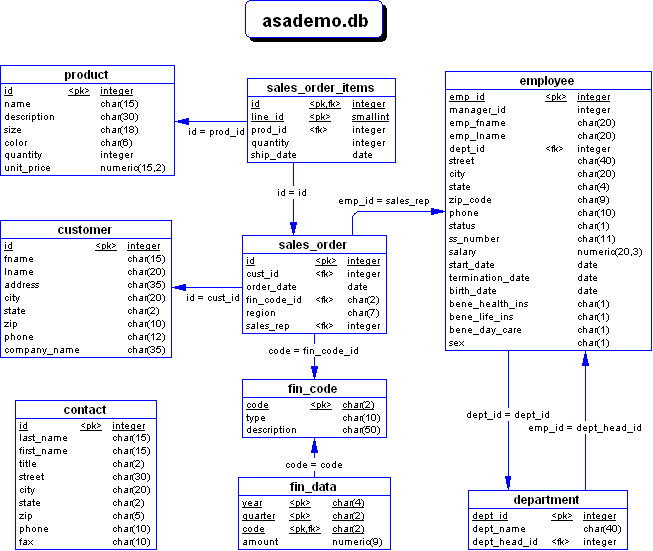







Introducing SQL Anywhere Studio
Tutorial: Designing Databases with PowerDesigner
The structure of your database, such as the tables, relationships, views and triggers, is called the database schema. You use SQL statements to create and arrange these elements to your liking, but doing so without a graphical tool can be confusing.
PowerDesigner gives you a graphical representation of the structure of your database. Better, you can modify the structure of the database or create an entirely new one simply by drawing new tables or entering information. Once your design is complete, PowerDesigner can generate a SQL script to generate your new database.
The following diagram, which displays the structure of the sample database, is easily created using PowerDesigner.

The performance of your database depends heavily on your design. In general, you should store information about different distinct types of objects, such as employees or products, in separate tables.
You can identify relationships between these tables using references, meaning that foreign keys in one table identify particular rows in another table. Many-to-one and one-to-many relationships can be represented by a reference. Many-to-many relationships require two references and another table.
For more information about database design, see Designing Your Database.
For more information about PowerDesigner, click Help in the toolbar of the PowerDesigner main window to access three books: PowerDesigner General Features Guide, PowerDesigner PDM User's Guide, and PowerDesigner Report User's Guide.
For more PowerDesigner tutorials, click Start



